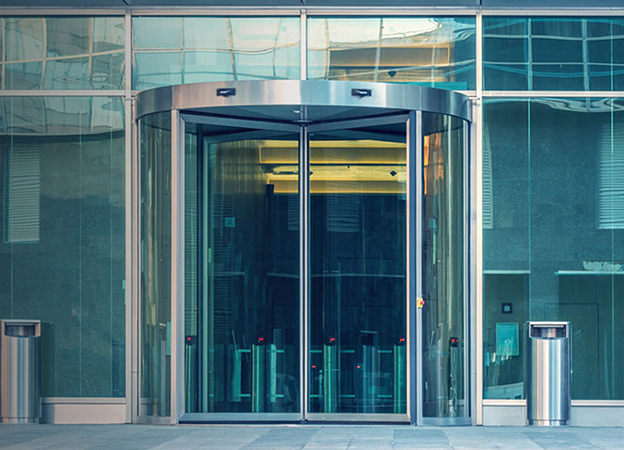- Cork HO 021 2376086
- Limerick 085 2366868
- Waterford/Tipp 085 2366868
- sales@energyglazing.ie
- Request a quote
- Request a quote
- Cork HO 021 2376086
- Limerick 085 2366868
- Waterford/Tipp 085 2366868
- sales@energyglazing.ie
 Fantastic Range
Fantastic Range
 Best Energy Rated Solutions
Best Energy Rated Solutions
 Competitive Pricing
Competitive Pricing
 Expert Fitting & Installation
Expert Fitting & Installation
 Fantastic Range
Fantastic Range
 Best Energy Rated Solutions
Best Energy Rated Solutions
 Competitive Pricing
Competitive Pricing
 Expert Fitting & Installation
Expert Fitting & Installation
CORK COUNTY AND CITY COUNCIL HOUSING AID FOR OLDER PEOPLE
The Housing Aid for Older People Scheme is available to assist people generally aged 66 or over, living in poor housing conditions, to have necessary repairs or improvements carried out. The types of works grant aided under the Scheme include re-roofing, re-wiring and the provision of central heating (where none exists).
The maximum grant available is €8,000 which may cover 95% of the approved cost of works to those with annual household incomes of less than €30,000 tapering to 30% for those with annual household incomes of €60,000. Applications will be prioritised on the basis of the type of work to be undertaken and on the urgency and necessity of the identified works.

HOME RENOVATION INCENTIVE
Introduction
The Home Renovation Incentive scheme enables homeowners or landlords to claim tax relief on repairs, renovations or improvement work that is carried out on their main home or rental property by tax-compliant contractors and that is subject to 13.5% VAT. It was introduced for homeowners in October 2013 and was extended to landlords in October 2014.
The Home Renovation Incentive (HRI) is paid in the form of a tax credit at 13.5% of qualifying expenditure, which can be set against your income tax over 2 years. This effectively reduces the rate of VAT to zero on qualifying work (up to a value of €30,000).
In general, qualifying work must be done between 25 October 2013 and 31 December 2015 (for homeowners) and between 15 October 2014 and 31 December 2015 (for landlords).
Rules
To qualify for the HRI as an owner-occupier, the work must be carried out on your principal private residence. As noted above, landlords can qualify in respect of work done on their rental properties.
Whether you are a homeowner or a landlord, you must be up to date with your obligations under the Local Property Tax and, if applicable, the Household Charge. You must be paying income tax – whether under PAYE or self-assessment – to avail of the HRI.
Any contractor you use must be registered for Value Added Tax (VAT) in Ireland and be tax-compliant. Revenue has published a checklist for contractors. If several contractors, such as a builder, a plumber and an electrician, carry out qualifying work on your home, you can combine the cost of the works to make up the minimum qualifying amount – see ‘Rates’ below.
Qualifying work
The type of work that qualifies for the HRI is repair, renovation or improvement work that is subject to VAT at 13.5%. This includes extensions, garages and attic conversions; the supply and fitting of kitchens, bathrooms and built-in wardrobes; fitting of windows; garden landscaping; plumbing, tiling, rewiring, plastering and painting.
If you are having your septic tank repaired or replaced, or are installing a radon gas mitigation solution, these types of work also qualify for the HRI. Work on driveways and on rainwater harvesting systems can also qualify.
Work that is subject to VAT at 23% (such as architect’s fees) is not covered. Neither are items such as furniture, white goods or carpets.
If you are unsure about whether your works will qualify, contact your Revenue office – see ‘Where to apply’ below.
Homeowners: In general, the work must be carried out and paid for between 25 October 2013 and 31 December 2015***. Qualifying work between 25 October 2013 and 31 December 2013 will be treated as if it was carried out and paid for in 2014.
Landlords: In general, the work must be carried out and paid for between 15 October 2014 and 31 December 2015***. Qualifying work between 15 October 2014 and 31 December 2014 will be treated as if it was carried out and paid for in 2015.
***However, if planning permission is required and is in place by 31 December 2015, work paid for up to 31 March 2016 will qualify.
Revenue has published general information about the HRI and specific information for homeowners and landlords, as well as a guide for homeowners and landlords (pdf).
Rates
The qualifying work must cost at least €4,405 before VAT at 13.5%, which adds to a total of €5,000 with VAT included. You will only get the tax credit in relation to a maximum of €30,000 (before VAT) during the 2 years covered by the HRI.
The minimum credit is €595, based on the minimum qualifying expenditure of €4,405. The maximum is €4,050, based on the maximum qualifying expenditure of €30,000.
If you are claiming a grant for the works, or if they are covered by an insurance claim, the amount of your expenditure that qualifies for HRI will be reduced – seeRevenue’s FAQs for more details.
How to apply
Claiming the credit
You can claim the HRI tax credit after the end of the tax year if your qualifying expenditure has reached the minimum amount of €4,405 before VAT (a total of €5,000) and you have paid income tax. Any unused tax credit can be rolled over into the following year.
In general, the tax credit is payable over the 2 years following the year in which the work is carried out and paid for .If you are on PAYE, your HRI tax credit will be divided evenly across your pay dates for each of the 2 years that it is payable. If you are a self-assessed taxpayer, it will be included in your self-assessment over 2 years, half the tax credit each year.
For homeowners, 2015 is the first year in which you can claim a HRI credit. The claim facility is available now for homeowners on HRI online.
For landlords, 2016 will be the first year in which a HRI credit can be claimed. The claim facility on HRI online will be available for landlords from January 2016.
Details of the work
For you to be able to claim the HRI credit, your contractor(s) must enter details of the work on the HRI online administration system. This system is only accessible to contractors who are registered for VAT and are tax-compliant.
Revenue advises homeowners and landlords to log in to HRI online to check that that their contractors have correctly entered details of the works and payments.
Checklist
You should also:
- Ensure that you have paid or arranged to pay any Local Property Tax (LPT) or Household Charge that is due
- Check that your contractor has a VAT number and is tax-compliant – see Revenue’s FAQsfor details of the proof required
- Ensure that the work qualifies – see ‘Qualifying work’ above
- Keep all supporting documentation – tax clearance certificates, estimates, receipts etc.
- Give the contractor the LPT Property ID of your property but notyour PIN or PPSN
Where to apply
If you need to check whether your work qualifies for the HRI, use the Revenue Contact Locator to locate your Revenue office.



